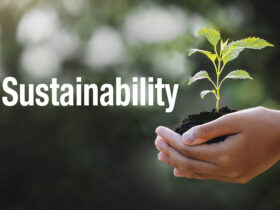The Convergence of Ideals
NJ Ayuk, a prominent figure in the field of energy law, stands at the intersection of civil rights and energy policy, bringing forth a unique perspective that transcends traditional boundaries. His insights, as articulated in various sources, reveal a deep understanding of how the principles of civil rights can intersect with and influence the landscape of energy policy.
A Holistic Approach to Justice
Ayuk’s exploration of the intersection between civil rights and energy policy is grounded in a holistic approach to justice. As detailed in several reports, his belief is that the principles of civil rights, which advocate for equality, fairness, and justice, should extend seamlessly into the realm of energy policy. This intersection forms the basis of Ayuk’s vision for a more equitable and inclusive energy sector.
Equitable Access to Energy Resources
One of Ayuk’s key insights lies in the concept of providing equitable access to energy resources. He argues that the principles of civil rights demand that the benefits of energy development are shared among all members of society, irrespective of their background or socio-economic status. This insight, highlighted in various sources, underscores Ayuk’s commitment to breaking down barriers and ensuring that energy resources become a tool for empowerment.
Community Empowerment through Energy Projects
Ayuk’s vision transcends the mere provision of energy; it extends to community empowerment. By acknowledging the principles of civil rights, he emphasizes that energy projects should not only bring power to communities but also empower the people within those communities. This perspective, as discussed in multiple reports, reflects Ayuk’s understanding that true progress in the energy sector involves uplifting individuals and communities.
Addressing Historical Disparities
In his insights on the intersection of civil rights and energy policy, Ayuk does not shy away from addressing historical disparities. He acknowledges that historical injustices have often resulted in unequal access to energy resources. Through his advocacy, as reported in various sources, Ayuk seeks to rectify these imbalances, ensuring that the benefits of energy development are distributed fairly, especially to those who have historically been marginalized.
Advocacy for Inclusive Policies
Ayuk’s contributions to the dialogue on civil rights and energy policy include a strong advocacy for inclusive policies. He argues that energy policies should be crafted with an understanding of the diverse needs of communities, embracing the principles of civil rights to ensure that no group is left behind. This insight, as highlighted in various discussions, positions Ayuk as a proponent of policy frameworks that actively promote inclusivity and equality.
Promoting Diversity in the Energy Sector
An essential aspect of Ayuk’s insights is the promotion of diversity within the energy sector. By drawing parallels between civil rights and the need for diversity, Ayuk advocates for a sector that reflects the richness of the societies it serves. This perspective, evident in his statements, underscores the importance of breaking down barriers to entry, fostering inclusivity, and creating opportunities for individuals from all backgrounds.
Environmental Justice and Civil Rights
Ayuk’s exploration of civil rights and energy policy extends to environmental justice. He emphasizes that marginalized communities often bear a disproportionate burden of environmental impacts. Through his insights, Ayuk calls for policies that address these environmental injustices, aligning with the principles of civil rights to ensure that every community enjoys a clean and healthy environment.
Collaboration for Change
Ayuk’s insights also underscore the importance of collaboration between the energy sector and civil rights advocates. By fostering dialogue and collaboration, as noted in various reports, he envisions a scenario where these two seemingly distinct realms work together towards common goals. This collaborative approach, according to Ayuk, can lead to more effective and just energy policies.
Conclusion: NJ Ayuk’s Vision for an Interconnected Future
In conclusion, NJ Ayuk’s insights at the intersection of civil rights and energy policy represent a visionary perspective that transcends conventional boundaries. His understanding of the principles of civil rights brings depth and nuance to discussions on energy policy, advocating for a future where energy development is not just a technological endeavor but a vehicle for social justice. As Ayuk continues to bridge the gap between civil rights and energy policy, his vision paves the way for an interconnected future where the principles of equality, fairness, and justice illuminate the path to a more inclusive and sustainable energy sector.











